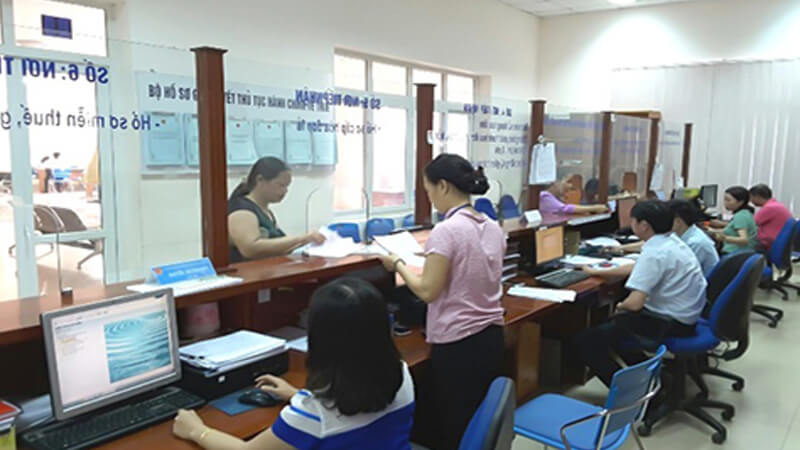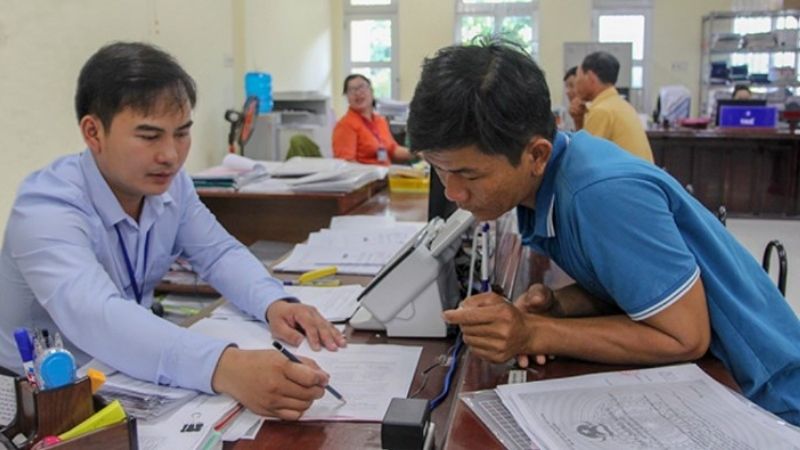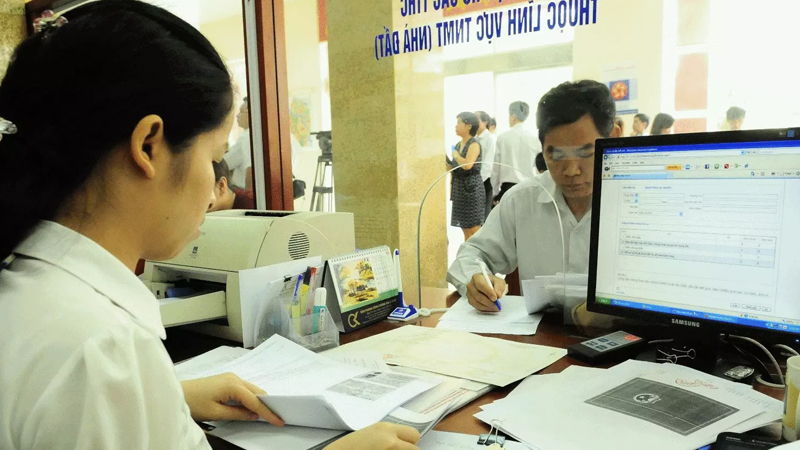Not many people are aware of the procedures and requirements for changing one’s name on their birth certificate, even though it is a legal right of citizens. So, if you are also unfamiliar with the information related to this process, please continue reading this article.
1 Requirements for Changing Name and Surname on Birth Certificate
Cases for Changing Surname
According to Article 27 of the Civil Code, there are eight cases in which an individual has the right to request the competent state agency to recognize a change of surname:
- Changing the surname of a biological child from the father’s surname to the mother’s surname or vice versa.
- Changing the surname of an adopted child from the biological father’s or mother’s surname to the adoptive father’s or mother’s surname upon the request of the adoptive parents.
- When an adopted child is no longer considered an adoptive child, and either the child or the biological parents request to change the child’s surname back to the biological father’s or mother’s surname.
- Changing the surname of a child upon the request of the biological parents or the child when establishing paternity or maternity.
- Changing the surname of a missing person who has found their blood relatives.
- Changing the surname to match the spouse’s surname in a marriage and family relationship involving foreign elements to comply with the law of the country of which the foreign spouse is a citizen, or restoring the previous surname.
- Changing the surname of a child when the parents change their surname.
- Other cases as stipulated by law on household registration.
 Although changing one’s surname or name is a legal right, not everyone is allowed to do so.
Although changing one’s surname or name is a legal right, not everyone is allowed to do so.
Cases for Changing Given Name
According to Article 28 of the 2015 Civil Code, individuals have the right to request the competent state agency to recognize a change of given name in the following seven cases:
- Upon the request of a person whose name causes confusion, affects family relationships, or infringes upon the honor, rights, or lawful interests of that person.
- Upon the request of adoptive parents to change the name of an adopted child, or when the adopted child is no longer considered an adoptive child, and either the child or the biological parents request to change the child’s name back to the name given by the biological parents.
- Upon the request of the biological parents or the child when establishing paternity or maternity.
- Changing the name of a missing person who has found their blood relatives.
- Changing the name of a spouse in a marriage and family relationship involving foreign elements to comply with the law of the country of which the foreign spouse is a citizen, or restoring the name before the change.
- Changing the name of a person who has had their gender identity determined or has undergone gender reassignment.
- Other cases as stipulated by law on household registration.
Regarding other cases stipulated by law on household registration, according to Clause 1, Article 17 of Circular No. 04/2020/TT-BTP, the correction of household registration (change of surname and given name) shall be resolved after determining that there was an error in the household registration (error made by the registrant or by the household registration authority). It does not correct the content of a legally issued household registration document to legitimize information in other personal documents.
For reference:
Cases for Minors Under 18 Years Old
According to Clause 1, Article 7 of Decree No. 123/2015/ND-CP, changing the surname, middle name, or given name of a minor under 18 years old must have the consent of the child’s parents and must be clearly stated in the Declaration; for a child from the age of nine years old and above, the child’s consent is also required.
2 Documents Required for Changing Name and Surname on Birth Certificate
 Documents required for changing name and surname on birth certificate
Documents required for changing name and surname on birth certificate
According to Circular No. 15/2015/TT-BTP, the following documents are required to change one’s name:
- Declaration of household registration correction.
- Birth certificate (notarized or certified copy, or a copy issued from the Household Registration Book).
- Other documents (if necessary), such as: Family Household Registration Book or Smart ID Card (CICD),…
- Power of attorney as prescribed by law in case of authorizing the implementation of the registration of changes, corrections, or supplements to household registration, or determination of ethnicity.
3 Guide to Changing Name and Surname on Birth Certificate
Based on Article 28 and Article 47 of the 2014 Law on Household Registration, the procedure for changing one’s surname and given name includes the following steps:
Requirements for Changing Surname and Given Name on Birth Certificate
Step 1 Prepare the Documents and Fill Out the Declaration
The person requesting the change of surname and given name shall submit the “Declaration of Household Registration Correction” according to the prescribed form and related documents to the household registration authority. In addition, the person must also present the original “Birth Certificate” of the person whose surname and given name are to be changed, along with other relevant documents as a basis for the change.
 Sample of the declaration for changing surname and given name
Sample of the declaration for changing surname and given name
Step 2 Submit the Declaration to the Competent Authority
According to Article 27 of the 2014 Law on Household Registration, the People’s Committee at the commune level where the previous household registration was made or where the individual resides has the authority to resolve the change of surname and given name for a person under 14 years old.
According to Clause 3, Article 46 of the 2014 Law on Household Registration, the People’s Committee at the district level where the previous household registration was made or where the individual resides has the authority to resolve the change of surname and given name for a Vietnamese citizen aged 14 and above residing in Vietnam.
Step 3 Wait for the Dossier to be Processed
After receiving the complete set of documents, within three days, if it is considered that there are grounds for the change or correction of household registration, the Justice-Household Registration official will enter the information in the “Household Registration Book”, and together with the person requesting the registration of the change or correction of household registration, sign the “Household Registration Book” and report to the Chairman of the Commune-level People’s Committee for issuing a copy to the requester. Then, enter the changes or corrections of household registration in the “Birth Certificate”.
In case verification is required, the time limit shall be extended for no more than three working days. If the change of surname and given name is not registered at the place of previous household registration, the Commune-level People’s Committee must notify in writing, together with a copy of the household registration extract, to the Commune-level People’s Committee where the previous household registration was made to enter the information in the Household Registration Book.
Step 4 Pay the Fee and Receive the Result
According to Article 3 of Circular No. 85/2019/TT-BTC, household registration fees are under the authority of the Provincial People’s Council. Therefore, each province will have a different fee for changing surname and given name.
 Each province will have a different fee for changing surname and given name.
Each province will have a different fee for changing surname and given name.
3 Notes on Changing Name and Surname on Birth Certificate
 Notes on changing name and surname on birth certificate
Notes on changing name and surname on birth certificate
Changing one’s surname and given name does not alter or terminate civil rights and obligations established under the previous name.
After changing one’s surname and given name on the birth certificate, the person can have their other related documents adjusted accordingly, in accordance with the law.
Article 6 of Decree No. 123/2015/ND-CP dated November 15, 2015, of the Government, detailing a number of articles and measures for the implementation of the Law on Household Registration, stipulates:
1. The birth certificate is the original household registration document of an individual.
2. All dossiers and personal documents of an individual containing information about their surname, middle name, given name; date, month, and year of birth; gender; ethnicity; nationality; place of origin; and relationship with parents must be consistent with the individual’s birth certificate.
3. In case the content in the individual’s dossiers or personal documents differs from the content in their birth certificate, the head of the agency or organization managing the dossiers or issuing the documents shall have the responsibility to adjust the dossiers or documents to match the content in the birth certificate.
The above is important information that you should know about changing one’s surname and given name on the birth certificate. Hopefully, this knowledge will be helpful to you or your family members in the future.
































